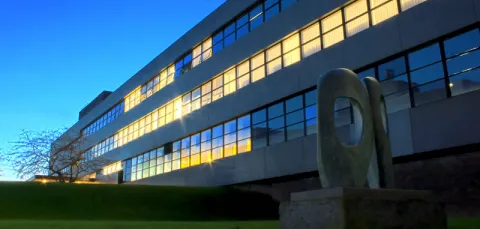Particle physicists study the most elementary constituents of matter, the basic forces of nature by which they interact, and their role in the early Universe. They rely on experiments ranging from huge particle accelerators to deep underground laboratories, to orbiting satellites, to particle simulations using the most powerful computers.
The next generation of experiments, such as those at the Large Hadron Collider (LHC) at CERN, are poised to unlock some of the deepest questions such as:
- why is the Universe so large?
- how did it begin and how will it end?
- what is the nature of dark matter and structure in the Universe?
- what is the origin of particle masses?
- can the forces of nature be unified?
- are there extra space dimensions?
- why are there three families of matter particles?
- can the equations describing the strong interaction be cracked?
With the aid of the new data we aim to shed light on such fundamental questions. We have experts who are currently involved in trying to answer all of these questions, using the latest ideas in lattice theory, quantum field theory, string theory, supersymmetry, and cosmology.
For background information on high energy physics, look at Fermilab's inquiring Minds exhibit.
